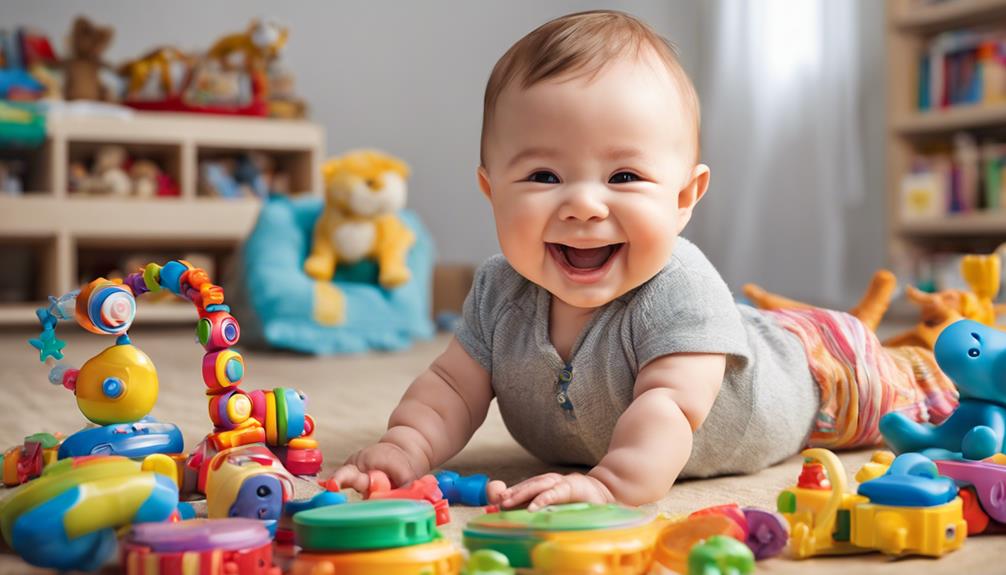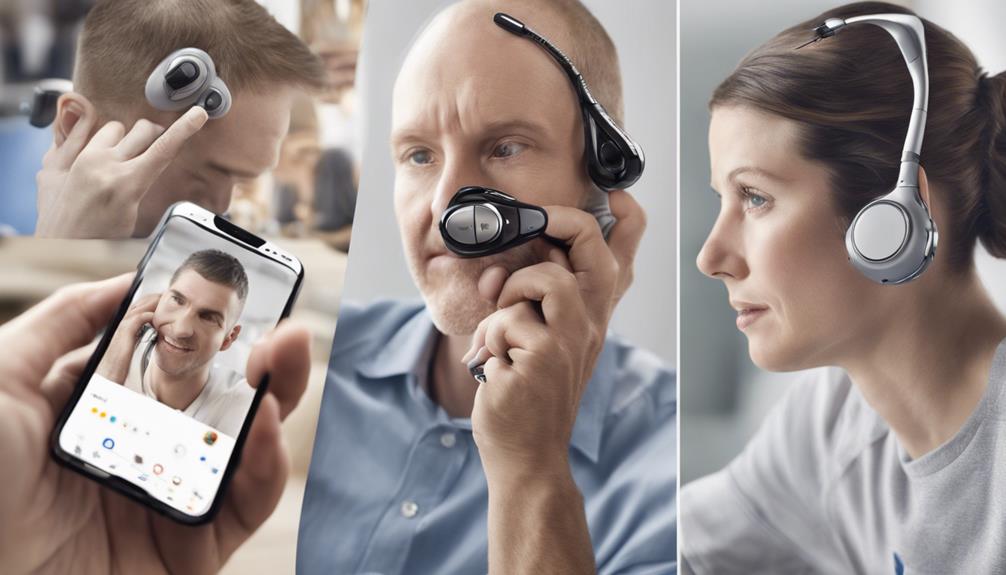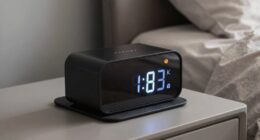When assessing potential candidates for cochlear implants, we follow a thorough process to pinpoint individuals who would benefit most from this procedure. Factors like the extent of hearing loss, capacity to adapt to communication changes, and medical history all play a crucial role in this decision-making process.
As we delve into the intricate layers of candidate selection, we uncover key elements that can significantly influence the outcomes of cochlear implantation.
Key Takeaways
- Severity of hearing loss evaluation crucial for cochlear implant candidacy.
- Communication skills assessment vital for successful outcomes post-implantation.
- Medical history review essential for determining candidacy and surgery risks.
- Expectation management and informed decision-making pivotal for patient satisfaction and success.
Severity of Hearing Loss Assessment
When assessing candidates for cochlear implants, we carefully evaluate the severity of their hearing loss to determine their eligibility for this advanced auditory solution. Individuals with severe to profound sensorineural hearing loss are often considered ideal candidates for cochlear implants due to the limitations they may face with bilateral hearing aids.
The assessment involves a detailed examination of preoperative hearing levels, specifically focusing on the range from normal to moderate in low frequencies and severe to profound in mid to high frequencies. The severity of high-frequency sensorineural hearing loss plays a pivotal role in determining candidacy for cochlear implants, as it directly impacts speech recognition abilities.
Communication Skills Evaluation

Thorough evaluation of communication skills is imperative in the assessment of candidates' suitability for cochlear implants. Assessing speech recognition and language development is crucial in determining a candidate's ability to understand speech in various environments. Functional listening skills and communication abilities are key indicators of a candidate's potential for successful outcomes post-implantation. A comprehensive evaluation of these factors ensures that individuals meet the criteria for cochlear implant candidacy.
During the communication skills evaluation, we focus on the candidate's ability to comprehend and respond to spoken language effectively. This assessment helps us understand how well the individual can navigate different communication settings and engage with others. By evaluating these skills thoroughly, we can determine if a cochlear implant is the right solution for enhancing the candidate's communication abilities across various environments. Ultimately, this evaluation plays a vital role in identifying ideal candidates for cochlear implants and maximizing their potential for improved quality of life through enhanced communication.
Medical History Review
In assessing candidates for cochlear implants, our next critical step involves thoroughly reviewing their medical history to identify any underlying conditions that may impact the success of the implantation procedure. This meticulous evaluation is crucial for determining the suitability of individuals for cochlear implants and understanding the potential risks associated with the surgery.
Here are four key aspects we consider during the medical history review:
- Past Surgeries: Previous surgical interventions, especially in the head or ear region, can influence the candidacy for cochlear implants.
- Ear Infections: Chronic or severe ear infections may pose challenges during and after the implantation process.
- Head Trauma: History of head injuries can impact the outcomes of cochlear implant surgery and recovery.
- Overall Health Status: A comprehensive understanding of the patient's overall health is vital for minimizing complications and optimizing outcomes post cochlear implantation.
Expectation Management Discussion

Initiating a comprehensive discussion on expectation management is pivotal in the evaluation process for cochlear implant candidacy, ensuring a clear understanding of potential outcomes. When dealing with candidates presenting with bilateral profound sensorineural hearing loss, setting realistic expectations is essential. The cochlear implant team plays a crucial role in guiding these discussions, outlining both the benefits and limitations of cochlear implants specific to each individual's situation. By engaging in detailed conversations during the candidacy evaluation, candidates can make informed decisions regarding their treatment journey.
Effective communication about expected outcomes not only fosters patient satisfaction but also contributes to long-term success with cochlear implants. Patients who've a thorough understanding of what to expect post-implantation are better equipped to navigate the process and manage their expectations accordingly. Through these discussions, individuals can gain insight into the potential benefits they may experience while also acknowledging the challenges they might face. This holistic approach to expectation management empowers candidates to make decisions that align with their goals and values, ultimately enhancing their overall experience with cochlear implants.
Follow-up Care Planning
For optimal outcomes post-cochlear implantation, meticulous planning of follow-up care is crucial to monitor progress and ensure adjustments are made as needed. This ongoing care involves various components that contribute to the overall success of the cochlear implant journey:
- Regular Audiologist Appointments: Scheduled visits with an audiologist are essential for monitoring progress, assessing device function, and making necessary adjustments to optimize hearing outcomes.
- Speech Therapy and Rehabilitation: Patients may benefit from speech therapy and rehabilitation services to improve speech perception and adapt to the cochlear implant effectively.
- Family Involvement: Involving family members in the follow-up care process can enhance patient satisfaction, support adaptation, and create a supportive environment for the individual with the cochlear implant.
- Progress Tracking: Tracking and documenting progress, challenges, and improvements are vital for tailoring follow-up care plans, ensuring patient satisfaction, and achieving long-term success with the cochlear implantation process.
Frequently Asked Questions
Who Are Good Candidates for Cochlear Implants?
We believe that individuals aged 18 and older with severe to profound high-frequency sensorineural hearing loss are good candidates for cochlear implants. If they've limited benefit from bilateral hearing aids and need residual low frequency hearing sensitivity, they may be suitable.
Preoperative hearing should range from normal to moderate in low frequencies and severe to profound in mid to high frequencies. Our implant team evaluates candidates extensively to determine eligibility based on individual needs and motivations.
What Are the 3 Criteria for Qualifying for a Cochlear Implant?
We must consider three main criteria for qualifying for a cochlear implant:
- Age (18 years or older)
- Severe to profound sensorineural hearing loss in both ears
- Limited benefit from hearing aids.
These factors are crucial in determining candidacy and ensuring successful outcomes.
It's essential to undergo a comprehensive evaluation by the implant team, show high motivation and family support, and maintain realistic expectations for the process.
Which of the Following People Is the Best Candidate for a Cochlear Implant?
When considering who's the best candidate for a cochlear implant, it's crucial to evaluate factors like severity of hearing loss, level of benefit from hearing aids, motivation, and family support.
Each individual's case is unique, and the decision should be made based on a thorough assessment by the implant team.
What Factors Determine Candidacy for Cochlear Implants?
When considering candidacy for cochlear implants, factors such as age, degree of hearing loss, limited benefit from hearing aids, and high motivation play crucial roles.
Evaluation is conducted by a specialized team on a case-by-case basis, assessing suitability based on auditory skill development, medical conditions, and realistic expectations.
Success with cochlear implants hinges on these factors, guiding us to determine the best course of action for each individual.
Conclusion
As we carefully assess the severity of hearing loss, evaluate communication skills, review medical history, and discuss expectations, we strive to provide the best possible care for cochlear implant candidates.
With thorough planning for follow-up care, we aim to ensure successful outcomes and improved quality of life.
Each individual's journey towards better hearing is unique and we're committed to supporting them every step of the way.
Stay tuned for updates on our progress and the impact of cochlear implants on our candidates' lives.










